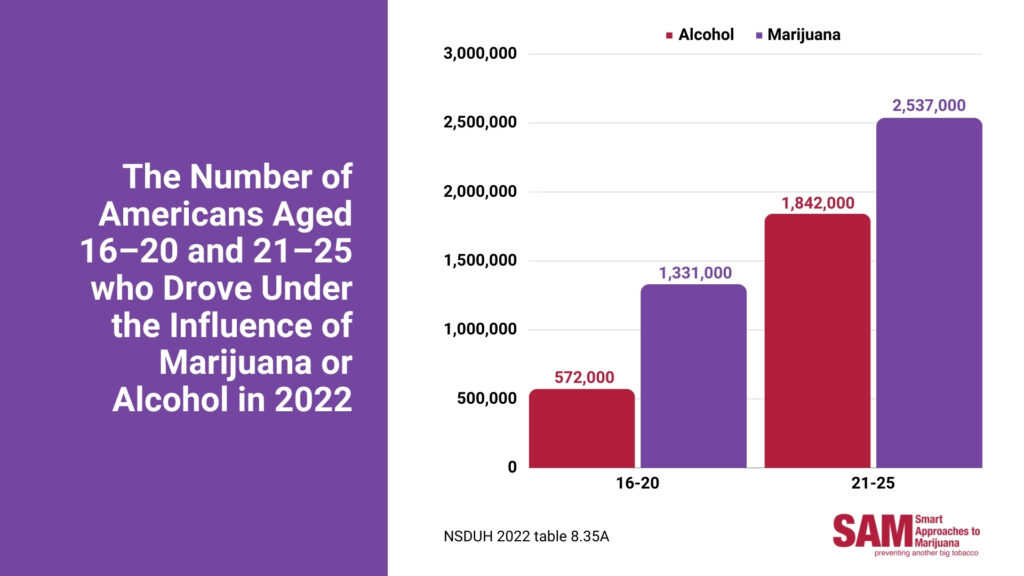
Report Highlights:
In 2022, nearly 3.9 million Americans between the ages of 16 and 25 admitted to driving under the influence of marijuana, compared to 2.4 million who admitted to driving under the influence of alcohol, according to the National Survey on Drug Use and Health. Among the 16–20 demographic, individuals were 2.3 times more likely to have driven under the influence of marijuana than alcohol.
Key Findings:
- Increased Risk in Young Drivers: Individuals aged 16–20 were 2.33 times more likely to have driven under the influence of marijuana than alcohol.
- Elevated Danger for Early 20s: Individuals aged 21–25 were 1.38 times more likely to have driven under the influence of marijuana than alcohol.
- By dividing the number of past-year users in each age group by the number of people who drove under the influence, we determined that:
- 21.4% of the 16–20-year-olds who used marijuana also drove under the influence of it––compared to 6.2% of 16–20-year-olds who drank alcohol and also drove under the influence of it.
- 28.8% of the 21–25-year-olds who used marijuana also drove under the influence of it––compared to 10.9% of 21–25-year-olds who drank alcohol and also drove under the influence of it.
These figures are not just numbers—they represent real risks to the safety of our communities. Young adults are navigating a world where the perceptions and legality of marijuana are rapidly changing. It is crucial that we address the misconceptions about driving under the influence of marijuana, especially among our youth.
What Can We Do?
Drawing on the recommendations of a marijuana impaired-driving one-pager from Smart Approaches to Marijuana, policymakers should:
- Launch education campaigns about the harms of drug-impaired driving.
- Include education about THC-impaired driving in driving schools.
- Define driving under the influence of drugs as being “impaired.”
- Train additional law enforcement officers as Drug Recognition Experts.
- Rely on properly defined DUI laws and well-trained officers. If that is found to be inadequate, states may consider a permissible inference of impairment if any level of an impairing substance is found in blood or oral fluid.
- Require marijuana products to include warning labels that warn about impairment and remind individuals not to drive under the influence of THC.
- Adopt open container laws for marijuana, as many have done for alcohol.
- Collect more data about the presence of THC in car crashes that result in fatal or serious injuries.
Immediate Action Needed:
Let’s work together to ensure the safety of our roads and the well-being of our young community members. Your involvement can make a significant difference.